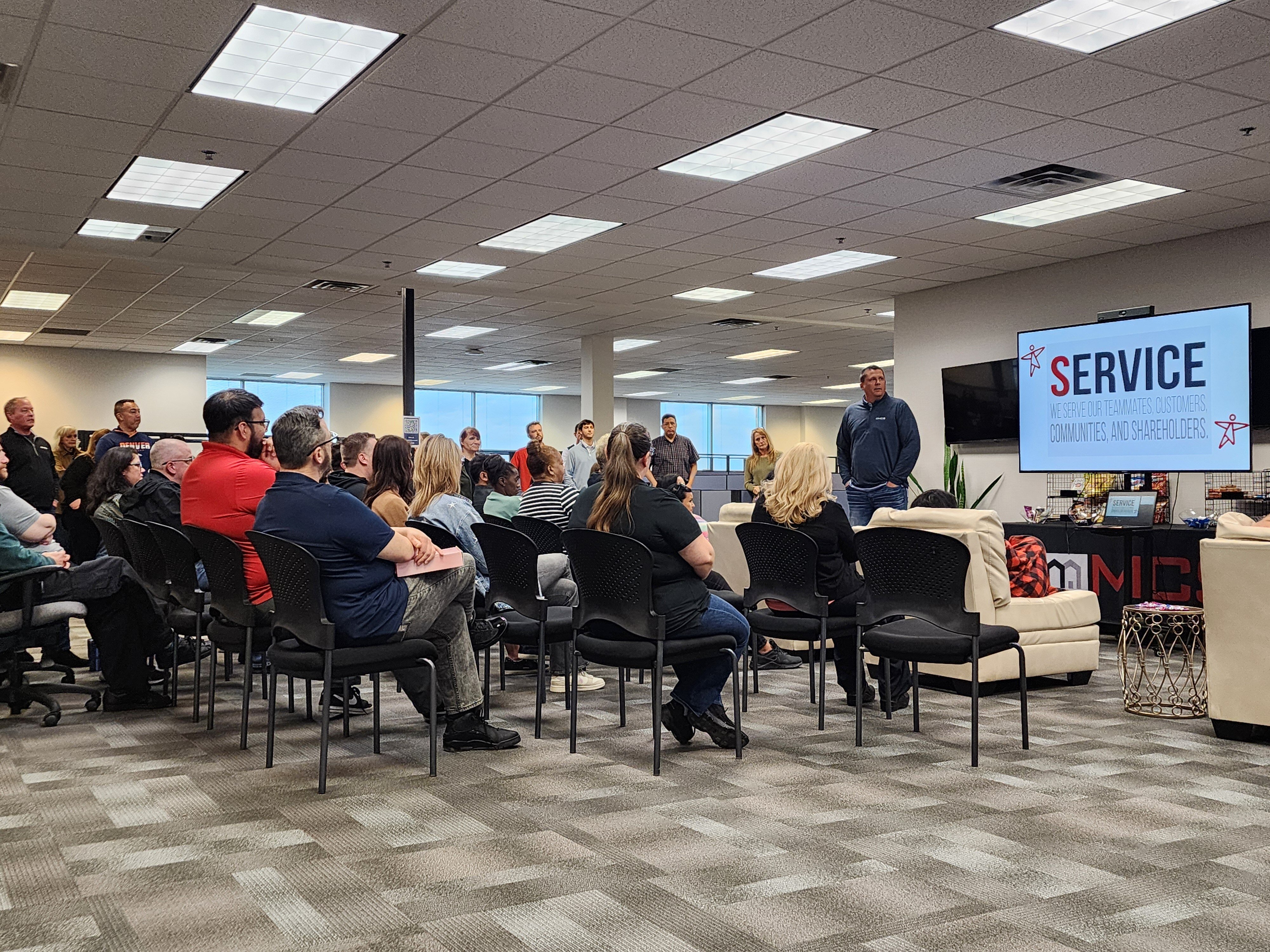Trade Careers That Pay Off: How to Get Started in Property Services

Single-family rental (SFR) and commercial facilities maintenance and repair are two industries that often share a labor pool. And work opportunities are plentiful—the property services industry is known as “the golden trades” as a result. But that labor pool is limited based on multiple factors, including a shortage of trained professionals and an awareness about opportunities to help you excel in trade careers.
Fortunately, MCS is already laying the groundwork to help train and mentor the next generation of services professionals. If you’re an aspiring trades professional, there are several steps you can take now to prepare for in-demand careers in property services, whether you see yourself working in a company as an employee or as an independent contractor/partner.
Benefits of a trade career
Trade careers offer a number of benefits as employment options. For example:
- Faster career launch: Because trade school training programs are shorter (often two years or less) than a four-year degree, you can be on the job and earn a salary sooner.
- Less expensive: Trade-career training can sometimes be at no cost (or even paid), when it’s done on the job. And trade school isn’t as likely to break the bank or leave you in debt the way that a four-year degree often can.
- Solid earning potential: Many trade careers, like those in plumbing, electrical, HVAC and carpentry for example, deliver take-home pay in line with or even greater than many careers that require a bachelor’s degree.
Bottom line: If you’re interested in a trade career in property maintenance, repair or construction, there are plenty of opportunities available. So, how do you get there?
How to start your trade career
Training for trade careers can come in different forms, depending on how you choose to specialize. Completing an 18- or 24-month trade school program in your area of interest will likely be worth the investment. But there are other routes as well, like on-the-job training and apprenticeships.
1. Find your trade career training path
How do you know which is the best path for you? Deciding between formal and on-the-job training often depends on the career path you want to take.
On-the-job training opportunities. If you’re interested in working in general maintenance and want to build a broad range of skills without a formalized program, you may be able to do it on the job. Over the next couple of years, MCS plans to build out apprenticeship programs for more generalized skills like handyman services. Until then, you can find on-the-job training options if you know where to look.
For example, a facilities role at an apartment complex might be a good path, as many will hire individuals interested in maintenance but with minimal or no experience and provide on-the-job training. Larger HVAC companies are also often willing to hire someone who’s mechanically inclined and make them an apprentice.
Formal trade school programs. If you’ve already decided on a specialty area like plumbing, HVAC, electric or carpentry, completing a trade school certificate program may make more sense as a direct route to getting the expertise and experience you need. You may even be able to work in your field while you’re completing your training, further accelerating your career trajectory. In fact, for certain programs, part of your training may require getting hired by a pre-approved contractor for a six-month apprenticeship, and your school may help pay for a portion of your salary.
2. Start early, if you can
Even if you aren’t a high school graduate yet, it’s not too early to start training for a career in the trades. In fact, some high schools allow students to complete part of their education at a trade school instead of completing traditional high school courses.
3. Research required certificates and licenses
Each trade has its own requirements, as do the organizations you’ll be working for, whether as an employee or a subcontractor/partner. So, it’s important to learn what’s needed for the area you want to work in so you can get the appropriate training and licenses and be qualified to work on the top projects and jobs that come your way.
4. Pay attention to geography
While opportunities abound, your area of interest and training also needs to align with your geographic area (or with an area you’re willing to move to if needed). For example, an HVAC technician with A/C experience will thrive in a metropolitan area like Phoenix but will need to focus on other mechanicals like heating or refrigeration to live and work in a cooler climate like Washington state.
Becoming a property services partner
Once you have the basic training completed, to help get your foot in the door at MCS or other companies, you’ll want to focus on a few essentials:
- Getting licensed and certified. If a license or certification is required for your trade, make that your first priority.
- Looking professional. A neat appearance and clearly marked business vehicle (if you’re in business for yourself) can go a long way. Focusing on this kind of professionalism helps ensure you’ll be taken seriously.
- Showing proof of work. Always take before-and-after photos of projects you’ve completed so you can highlight the quality of your work, and create a simple website or a social media profile to increase your visibility.
Put your best foot forward
While opportunities for trade careers in property services are plentiful, you will still be competing for the best jobs or projects. So, how can you best differentiate yourself?
By making an effort whenever and wherever you can—your initiative and attitude can be as important as your skillset in many cases. Show up early. Be willing to stay late when needed to finish a job. If your role is paused waiting for someone else to complete theirs, be willing to jump in and ask if you can help where it’s appropriate.
The trades provide a wide range of opportunities across the construction and real estate maintenance industries. By taking advantage of the right training opportunities and positioning yourself well, you’ll be poised for a rewarding (and potentially lucrative!) career.
Want to learn more about joining the MCS team? Take a look at our current job openings and opportunities for property services partners.


